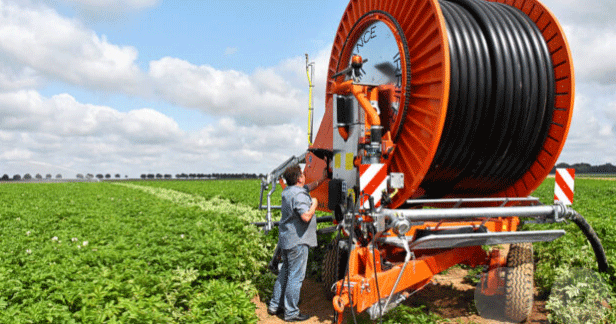In 2006, Pierre-Henri Belvas began his agricultural career on a polyculture-livestock farm in Regnauville, Pas-de-Calais. However, the demands of dairy and pig farming, coupled with limited profitability, led him to reconsider his approach. In 2015, Belvas made the difficult decision to exit the livestock business, and by 2017, he fully transitioned into crop farming, with a special focus on potatoes.
Potatoes, much like flax, have become highly attractive to French farmers due to their profitability. According to recent market data, the potato industry in France has seen a steady increase in both production and revenue, with margins often exceeding those of traditional livestock farming. The shift toward potatoes reflects a broader trend in French agriculture, where farmers are gravitating toward crops that offer better financial returns with less overhead.
The Shift from Livestock to Crops
Belvas’s decision to shift from livestock to crop farming was driven by both economic and practical considerations. The livestock sector, particularly dairy and pork, has been struggling with low margins and high infrastructure costs. For Belvas, continuing in these areas would have required significant investments in new buildings, which did not seem viable given the limited profitability. In contrast, potatoes offered a path to higher margins without the need for major infrastructure investment.
Potato farming in France has been on the rise, with a production volume of around 7.8 million tonnes in 2023. The Pas-de-Calais region, where Belvas operates, is one of the leading areas for potato cultivation in France, thanks to its favorable climate and soil conditions. However, growing potatoes is not without its challenges. The crop requires careful management, from soil preparation to irrigation and disease control, which demands both technical knowledge and significant labor.
Balancing Crop Diversity and Sustainability
While potatoes have proven to be profitable, Belvas is careful to maintain a balance between different crops. Alongside potatoes, he also grows flax, another high-margin crop that has gained popularity in recent years due to the rising demand for sustainable materials. This diversification is not only a strategy to maximize profit but also a way to reduce risk and maintain soil health.
Crop rotation is essential in potato farming to prevent soil depletion and reduce the risk of pests and diseases. For Belvas, alternating between potatoes and other crops like flax helps maintain the long-term sustainability of his farm. This approach aligns with broader agricultural practices in France, where sustainable farming methods are increasingly being adopted to protect the environment while ensuring economic viability.
Challenges and Rewards of Potato Farming
Despite its profitability, potato farming comes with its own set of challenges. Climate change has introduced new uncertainties, with extreme weather events threatening crop yields. In the Pas-de-Calais region, unpredictable weather patterns have made irrigation and crop protection more critical than ever. Additionally, the increasing cost of inputs, such as fertilizers and pesticides, has pressured profit margins.
However, the rewards of potato farming remain significant. Potatoes continue to be a staple food in France, with strong demand from both domestic and international markets. Belvas’s success in this sector demonstrates how farmers can adapt to changing economic conditions by embracing crops with higher margins while maintaining a focus on sustainability.
Pierre-Henri Belvas’s journey from livestock to potato farming reflects a broader shift in French agriculture towards more profitable and sustainable crop production. By balancing high-margin crops like potatoes and flax with responsible farming practices, Belvas has found a way to secure the future of his farm in an increasingly competitive market. His story serves as an example for other farmers looking to adapt to the evolving agricultural landscape.







